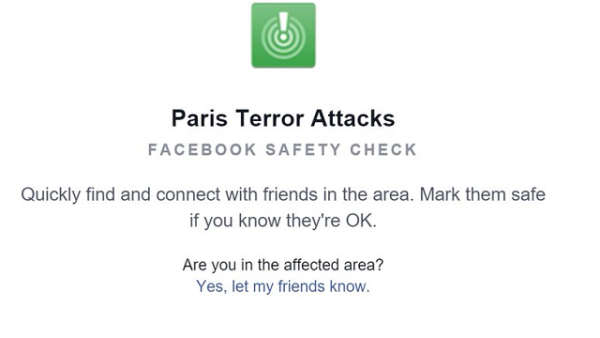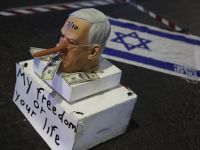Facebook’s ‘Safety Check’ feature has been praised for its role in connecting loved ones after the Daesh-coordinated attacks in Paris on Friday night. However many have the raised the question: What about Beirut?
A series of social media posts have brought to light the fact that Facebook did not activate the Safety Check feature after the Daesh bombings in Beirut which killed over 40 people on Thursday - one night before the Paris attacks. Some have also asked why there was no Safety Check for those in Baghdad, concerned about loved ones after Daesh suicide bombings killed 26 on Friday.
Among Facebook’s critics was Anne Barnard, New York Times' bureau chief in Beirut. Her Facebook post echoes the thoughts of many Beirutis who are seeking answers from the social network:
Perhaps it's a small thing given the context, but food for thought: I'd noticed the new Facebook feature that lets...
Posted by Anne Barnard on Saturday, 14 November 2015
Yes, why don't we? Hey zuckerberg, we are a small country in the med. just next to Palestine and Syria ... https://t.co/N21y9QaEaa
— Sonya Sabbah (@SonyaSEtiq) November 14, 2015#Facebook's safety status tool allows you to check on your friends, but ONLY in #Paris not in #Baghdad, #Damascus, #Gaza, or #Beirut.
— Sari al-Khalili (@Sari_AlKhalili) November 14, 2015Apparently Beirut doesn't deserve a safety check on Facebook.
— DenniS the menace (@densection) November 15, 2015
Facebook responded in a statement which explained that this was the first time the feature had been activated for a crisis which was not the result of a natural disaster. The company also stated that it now plans to use Safety Check more often in the future, “whenever and wherever it can help”. See the full statement below:
Yesterday, we activated Safety Check in Paris so that people there could let their friends and family know they were...
Posted by Facebook Safety on Saturday, 14 November 2015
Facebook founder Mark Zuckerberg himself responded to the questions, writing: “Thank you to everyone who has reached out with questions and concerns about this. You are right that there are many other important conflicts in the world. We care about all people equally, and we will work hard to help people suffering in as many of these situations as we can.”
By Kane Hippisley-Gatherum







